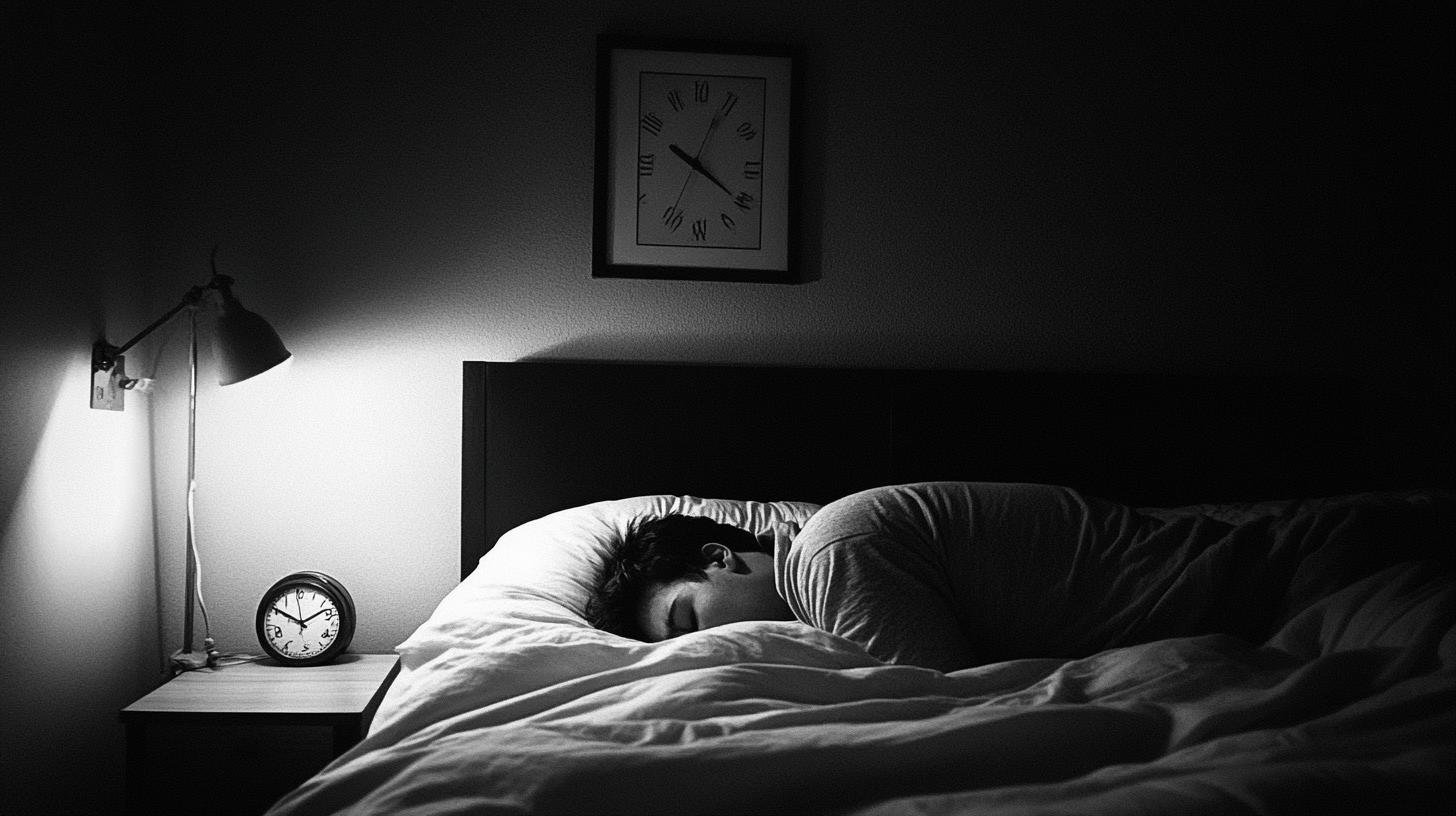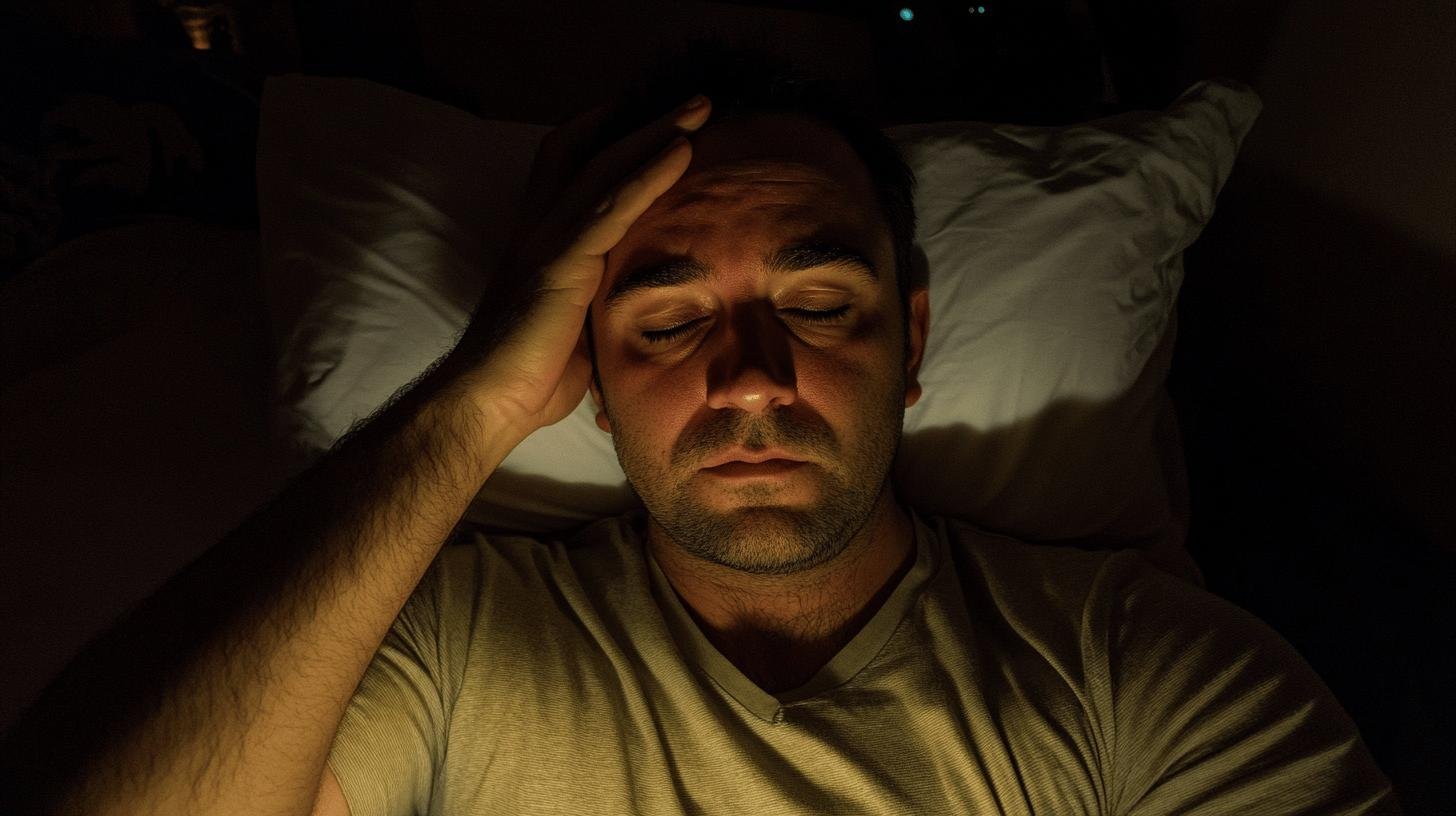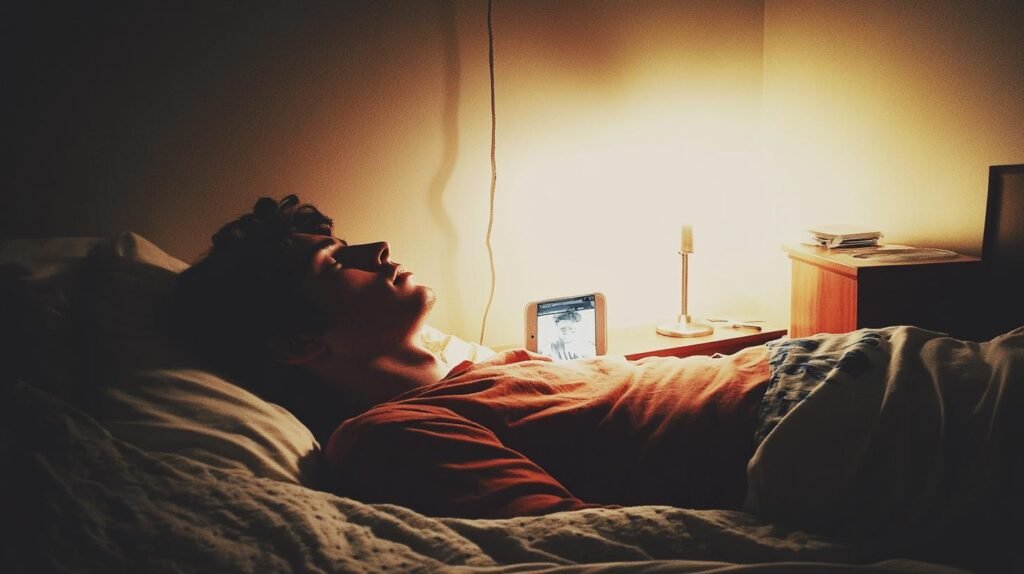TL;DR:
- Insomnia affects 33% of people and 70-80% of psychiatric inpatients.
- Symptoms: trouble falling asleep, waking at night, early rising, unrested feeling, daytime tiredness.
- Causes: stress, irregular sleep schedules, anxiety, depression, poor sleeping habits, medical conditions (diabetes, respiratory issues).
- 90% of depressed individuals also experience insomnia, which increases suicide risk.
- Physical impacts: high blood pressure, cardiovascular issues, chronic pain.
- Treatments: Cognitive Behavioral Therapy (CBT-I), lifestyle changes (consistent schedule, comfortable environment, avoid caffeine/alcohol), pharmacological options.
- Direct Primary Care (DPC) offers a personalized approach to managing insomnia, including holistic treatments and telehealth services.
Ever feel like counting sheep just isn’t cutting it? You’re not alone. Insomnia is more common than you might think, staking its claim in about 33% of the population. That’s a lot of us tossing and turning at night! Insomnia Health Conditions don’t just lead to daytime grumpiness—it can really hit you hard in other areas of life, too. But don’t worry! In this article, we’ll uncover what insomnia is all about and why it’s playing such a big role in our lives. So, let’s jump in and start enhancing that sleep quality!
Understanding Insomnia and Its Health Implications
Insomnia is a very common sleep disorder affecting your ability to get a good night’s rest. While your body needs sleep, your brain might not cooperate. About 33% of people experience insomnia, which is a large number. It’s also prevalent in psychiatric environments, affecting 70-80% of inpatients and roughly a third of outpatients. So, if you’re struggling to sleep well, you’re definitely not alone.
Symptoms of insomnia include:
- Trouble falling asleep
- Waking up during the night
- Getting up too early
- Feeling unrested
- Daytime tiredness
Insomnia doesn’t just make you sleepy; it can ruin your day, too. Trying to focus at work or school while feeling foggy is challenging. Insomnia impacts more than just your nights—it affects your entire life.
Causes and Risk Factors for Insomnia

Insomnia doesn’t appear out of nowhere. Many factors can trigger those sleepless nights. Let’s explore what might be keeping you awake.
Causes of Insomnia
First on the list is stress. When stressed, your mind tends to race, especially at bedtime. This disrupts your body’s natural relaxation process. Irregular sleep schedules can unsettle your internal clock, confusing your body. Additionally, mental health issues like anxiety and depression play a significant role. It’s a cycle—anxiety prevents sleep, and lack of sleep increases anxiety.
Risk Factors
Unfortunately, stress is both a cause and a risk factor. Poor sleeping habits, like using your phone before bed or consuming caffeine late, also hinder sleep. Medical conditions such as diabetes and respiratory issues can cause discomfort that keeps you awake.
- Diabetes
- Breathing problems
- Heartburn
- Musculoskeletal disorders
Recognizing these factors is a step toward better sleep.
Insomnia and Mental Health: A Deep Connection
Insomnia and mental health are closely linked. They influence each other; insomnia can worsen disorders like anxiety and depression, and these disorders can make sleep difficult. Astonishingly, about 90% of individuals with depression also face insomnia. It can even persist after depressive symptoms improve. Insomnia isn’t just about lack of sleep; it’s linked to increased suicide risk due to feelings of loneliness and hopelessness.
Anxiety and Insomnia
Anxiety increases brain activity at bedtime, similar to having many tabs open on a computer. Insomnia can worsen anxiety, creating a cycle of stress and sleeplessness. If you are anxious while trying to sleep, your brain’s stuck in this loop.
Depression and Insomnia
Depression and insomnia often go hand in hand. Insomnia complicates depression, creating a cycle that’s hard to break. Even if you’re managing your depression, insomnia may linger like an unwelcome guest.
Insomnia’s Impact on Physical Health

Insomnia affects more than just your nights; it can harm your physical health, too. It influences various body systems, impacting energy, mood, and job performance.
Cardiovascular Risks
Insomnia can affect your heart, leading to high blood pressure and cardiovascular problems. Without enough sleep, stress hormones aren’t regulated, causing your blood pressure to rise, which can damage heart health over time.
Chronic Pain and Musculoskeletal Impacts
Chronic pain often accompanies insomnia. If discomfort keeps you awake, you’re not alone. Insomnia can worsen pain, which, in turn, affects sleep—a vicious cycle. Conditions like arthritis result in pain that disrupts restful sleep.
- High blood pressure
- Diabetes
- Cardiovascular issues
- Nocturia
- Musculoskeletal disorders
Recognizing these connections is crucial for addressing insomnia’s physical impacts and improving sleep quality.
Effective Treatments and Management Strategies for Insomnia
Improving sleep quality can make insomnia a thing of the past. Here are some strategies to help you sleep better.
Cognitive Behavioral Therapy (CBT-I)
CBT-I is a top treatment for insomnia. It involves modifying thoughts and behaviours that disturb sleep. Think of it as reprogramming your brain to link your bed with restful sleep instead of stress. Studies show that CBT-I can be more effective than medications. It focuses on root causes rather than just treating symptoms.
Lifestyle Changes
Altering your daily routine can greatly enhance your sleep. Keep a consistent sleep schedule and create a comfortable sleep environment—cool, dark, and quiet. Avoid electronics near bedtime. Watch what you consume; reducing caffeine and alcohol intake helps. Relaxation techniques, like meditation or gentle yoga, can prepare your body for sleep.
- Regular sleep schedule
- Comfortable sleep environment
- Limiting caffeine and alcohol
- Incorporating relaxation techniques
Pharmacological Treatments
Sometimes, medication is necessary if other treatments don’t work. Options include prescription sleep aids or over-the-counter remedies. Each has specific uses, like helping you fall or stay asleep, but are usually short-term fixes. Consult your healthcare provider to find the best option and consider potential side effects. Medications often work best alongside CBT-I or lifestyle changes.
Direct Primary Care: An Affordable Approach to Managing Insomnia

Direct Primary Care (DPC) offers an affordable solution for managing insomnia. With DPC, you pay a regular fee for comprehensive healthcare services, eliminating surprise bills. This allows doctors to focus on you, not paperwork. For insomnia, your doctor can dedicate time to understand your situation and develop a personalized plan. It’s like having a sleep coach guiding you to better sleep.
DPC often incorporates holistic treatments like yoga, melatonin, and aromatherapy. These approaches vary in scientific support but can potentially improve sleep quality. Telehealth services make it convenient to access sleep evaluations from home, providing expert guidance without the hassle. It’s all about making quality sleep care accessible and affordable.
Final Words
We’ve navigated through the intricate world of insomnia, exploring its symptoms, causes, and profound effects on mental and physical health. Stress and poor sleep habits can worsen insomnia, while cognitive behavioural therapy and lifestyle tweaks can offer relief.
Mental health ties run deep—insomnia can fuel anxiety and depression. On the flip side, it also wreaks havoc on your physical well-being, raising risks for heart disease and chronic pain.
Thankfully, innovative approaches like Direct Primary Care, which focuses on personalized and holistic insomnia treatments, are making it easier to manage these conditions. Here’s to reclaiming restful nights and vibrant days!
FAQ
What are the causes of insomnia in females and males?
A: Causes of insomnia in females and males include stress, irregular sleep schedules, mental health disorders, and certain medications.
How can I cure insomnia in 12 minutes or quickly?
A: There isn’t a guaranteed quick fix, but relaxation techniques, deep breathing, and limiting screen time before bed can help improve sleep quality.
What are the main types of insomnia?
A: The main types are acute insomnia (short-term, usually from stress) and chronic insomnia (lasting more than three nights a week for three months or longer).
Which disease conditions can be linked to insomnia?
A: Insomnia can be linked to diabetes, breathing problems, heartburn, and musculoskeletal disorders.
What happens if insomnia doesn’t go away?
A: If insomnia persists, it could impact mental and physical health, increasing risks of depression, anxiety, high blood pressure, and heart problems.
How did Jennifer Aniston overcome insomnia?
A: Jennifer Aniston reportedly uses a consistent bedtime routine, including meditation and limited screen time before bed.
What is the best cure for insomnia?
A: Cognitive Behavioral Therapy for Insomnia (CBT-I) is often recommended as the most effective treatment, combining behaviour changes with cognitive techniques.

